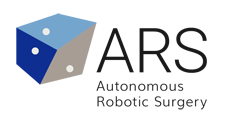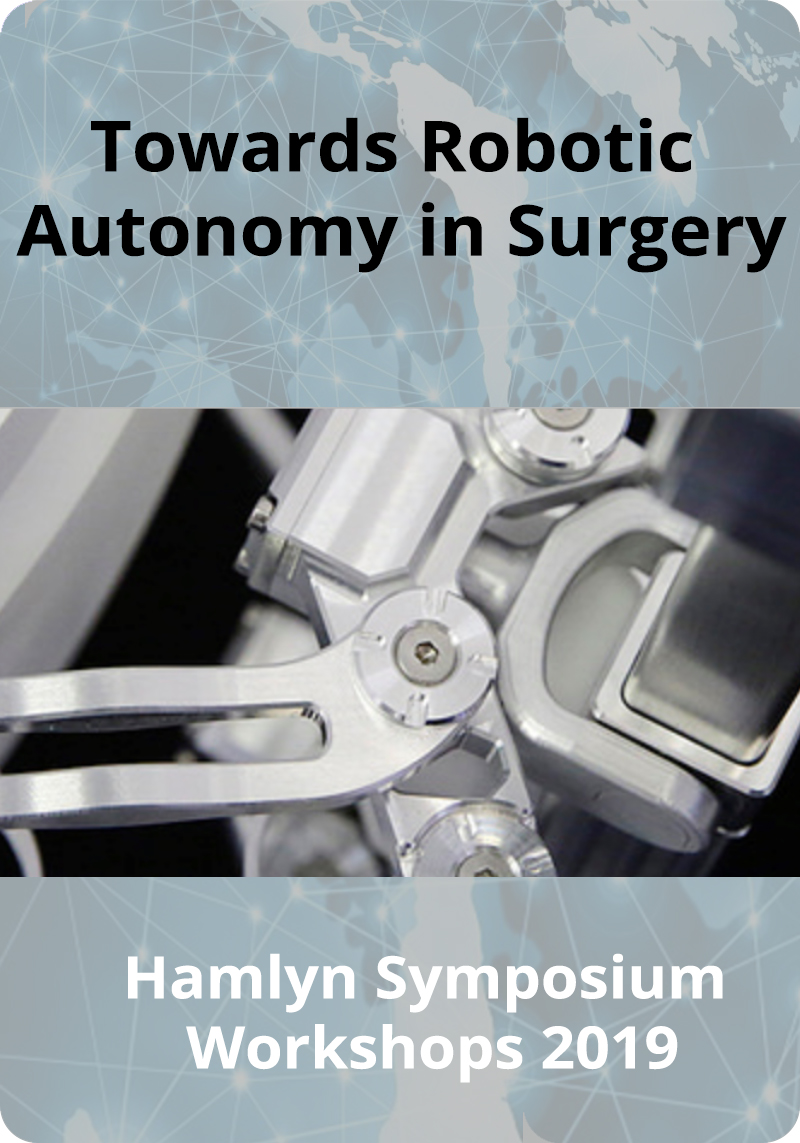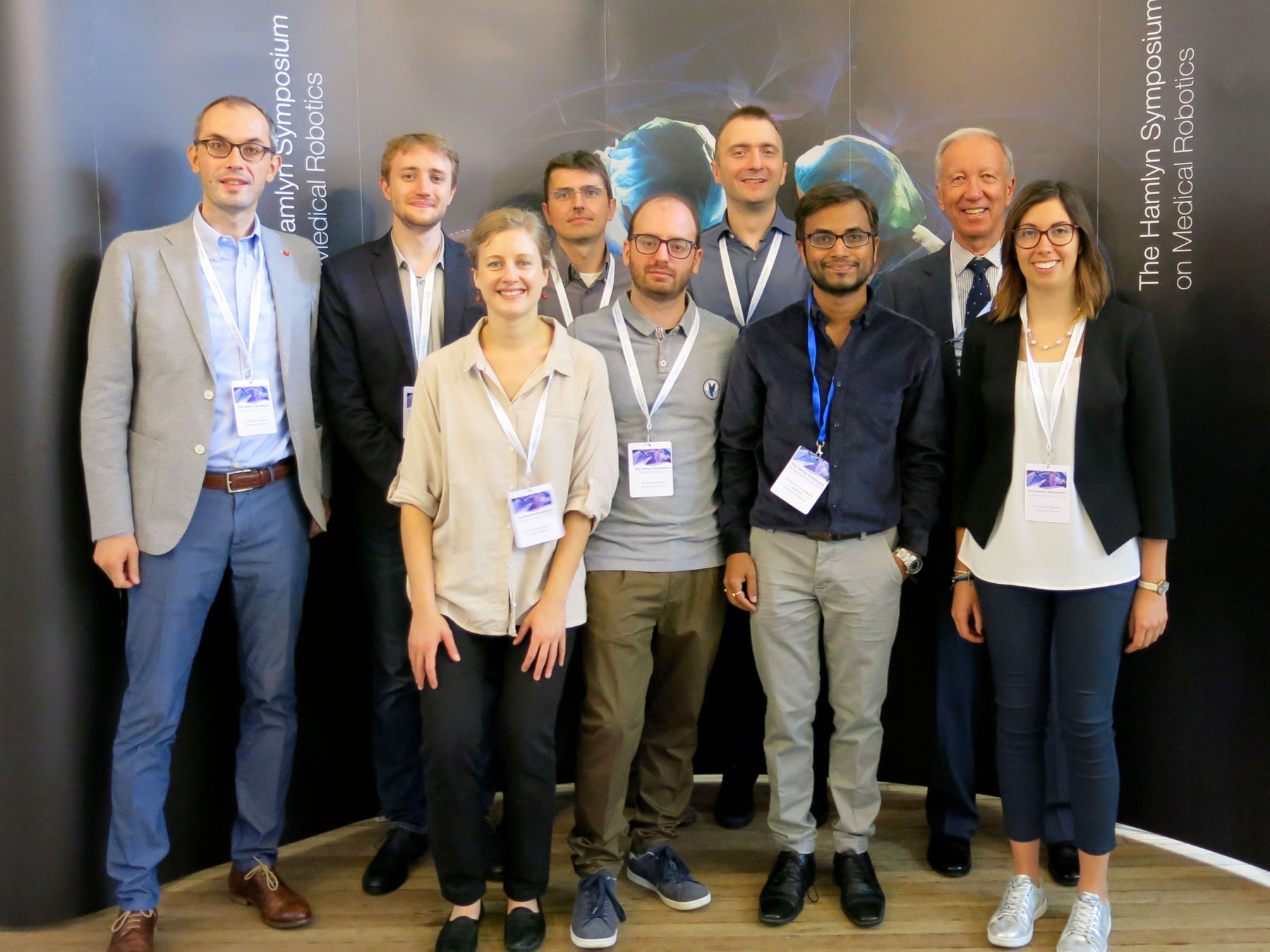Towards Robotic Autonomy in Surgery workshop
At the Hamlyn Symposium on Medical Robotics23 june 2019, london
Time and place
Sunday 23rd June 2019 from 08:30 – 15:30 Royal Geographical Society, LondonCo-Chairs and Organisers
Paolo Fiorini, University of Verona, Italy Riccardo Muradore, University of Verona, Italy Francesco Setti, University of Verona, ItalySponsors
University of Verona, ItalyIntroduction to the workshop
Dexterity and perception capabilities of surgical robots may soon be enhanced by cognitive functions that can support surgeons in decision making and performance monitoring, and enhance surgical quality.
However, the basic elements of autonomy are not well understood and their mutual interaction is unexplored. Current classification of autonomy encompasses six basic levels:
Level 0: no autonomy; Level 1: robot assistance; Level 2: task autonomy; Level 3: conditional autonomy; Level 4: high autonomy. Level 5: full autonomy.
The practical meaning of each level and the necessary technologies are the subject of intense debate and development. In this workshop, we will focus on exploring the transition from level 0 to level 1 and 2, where the robot is providing cognitive and operative support in a “shared” control approach, with the human always in charge of decisions.  These levels have the basic building blocks of autonomy, i.e. the ability to understand the task, to plan a proper action, and to ensure its safe execution.
We plan to organize the workshop in four tracks, to examine the needs and challenges:
- The surgical needs of autonomous support and their impact on industry will be presented by surgeons and technicians;
- Knowledge representation will be addressed by examining a top-down approach based on ontological description and a bottom-up approach based on data analysis;
- The current advances in situation awareness will be presented by describing current work in real-time reasoning and machine learning for decision making;
- The control aspects will focus on the description of the shared autonomy framework.



